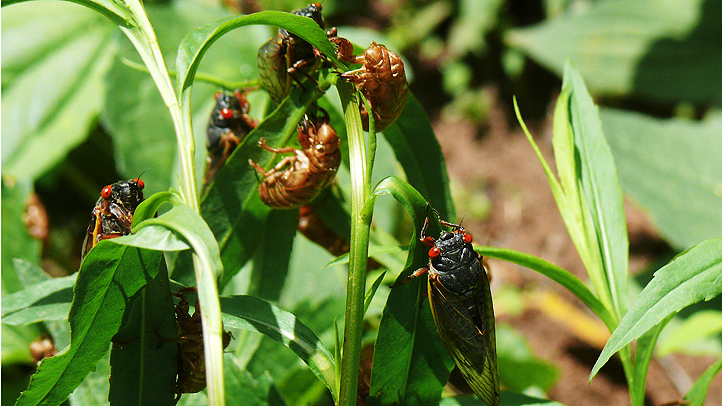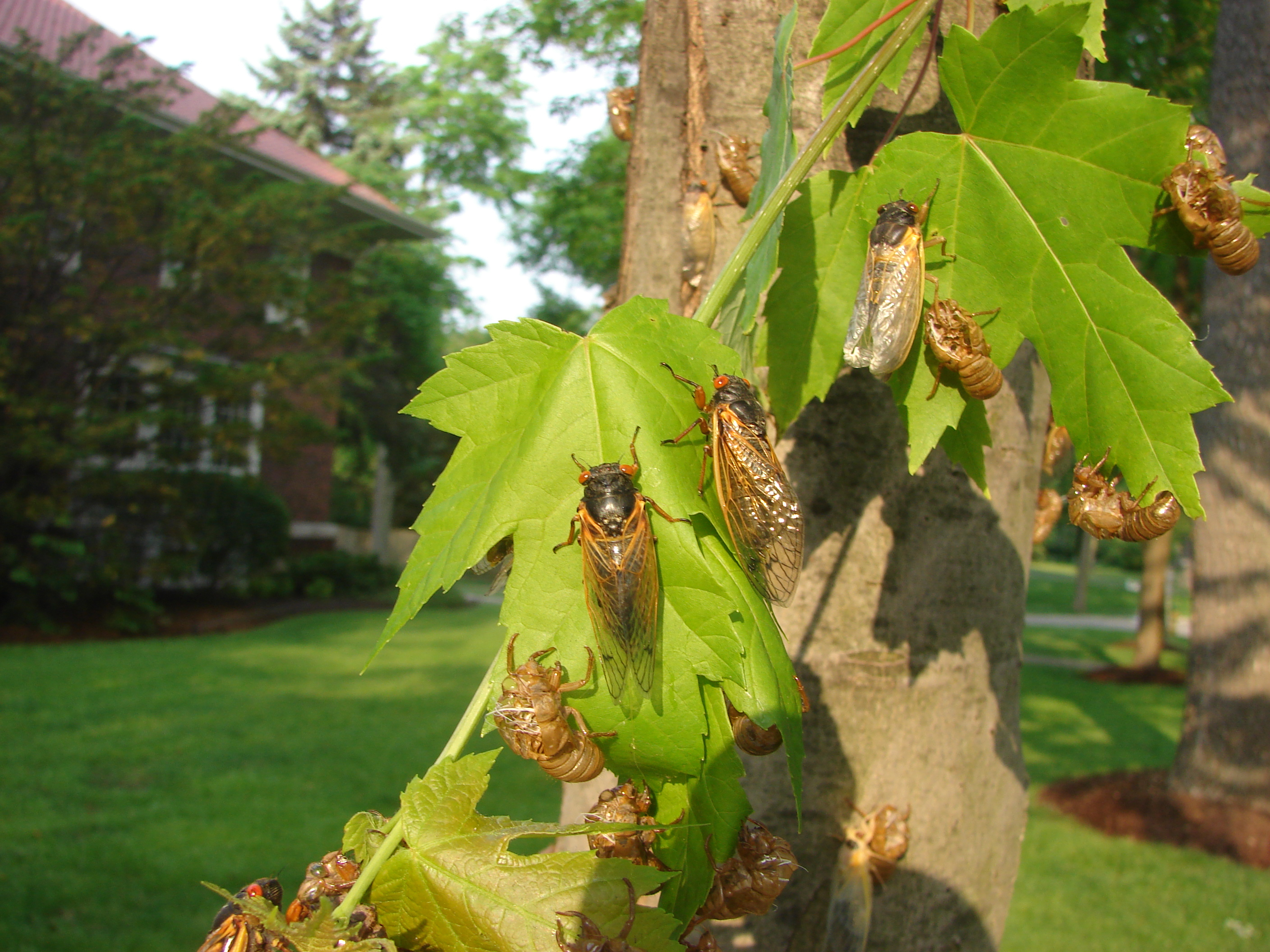Two cicada broods are set to emerge from the ground simultaneously this spring, marking a rare occurence that hasn't been seen in centuries, but which two broods are making their historic appearance and where?
Experts have said two periodical cicada broods, which haven't emerged simultaneously in more than 220 years, will rise from the ground in parts of the U.S. in the coming weeks.
The periodical cicadas come earlier than the well-known "dog day" cicadas, which are often seen annually in early July.
The two broods are Brood XIII and Brood XIX.
Here's what to know about each:
What is Brood XIII?
For the Chicago area, Brood XIII will be most seen in parts of northern Illinois and Indiana, and possibly even in Wisconsin and Ohio, in late May 2024, Dr. Gene Kritsky, dean of Behavioral and Natural Sciences at Mount St. Joseph University in Cincinnati, said in a 2023 press release.
The Northern Illinois Brood itself is huge, with a reputation for the "largest emergence of cicadas anywhere," according to the University of Illinois.
In 1956, entomologists reported as many as 311 "emergence holes" per square yard in a forested floodplain near Chicago, which experts say translated to 1.5 million cicadas per acre, according to the University of Illinois.
"When the cicadas start dying and dropping from the trees later in the spring, there are large numbers on the ground, and the odor from their rotting bodies is noticeable," U of I reports. "In 1990, there were reports from people in Chicago having to use snow shovels to clear their sidewalks of the dead cicadas."
Feeling out of the loop? We'll catch you up on the Chicago news you need to know. Sign up for the weekly Chicago Catch-Up newsletter.
What about Brood XIX?
Meanwhile, Brood XIX, or the Great Southern Brood cicadas, have a more widespread population, covering parts of Missouri, Illinois, Louisiana, North Carolina, Virginia and Maryland.
"Brood XIX is arguably the largest (by geographic extent) of all periodical cicada broods, with records along the east coast from Maryland to Georgia and in the Midwest from Iowa to Oklahoma," the University of Connecticut reports. "Although 13- year cicadas are generally considered to have a southern distribution, the northernmost known record of this brood is in Chebanse, IL, roughly 75 miles from Chicago’s Loop."
When are the cicadas expected?
Chicago officials issued an advisory last week, saying the first emergence is expected sometime around late April through early June, but the city might not see as much of an impact.
Cicadas typically emerge as the ground begins to warm in the spring and early summer.
That means an emergence is likely between mid-May and early June, though some could start as early as late April.
According to an article from the University of Illinois Urbana-Champaign Extension, the Northern Illinois Brood's emergence typically occurs in May and June, and lasts approximately four weeks.
"Adult cicadas will be active until mid- to late-June, but you will see evidence long after they are gone, including their wings, molts, and decomposing bodies," cicada expert Catherine Dana, an affiliate with the Illinois Natural History Survey, told NBC Chicago.
What to know for Illinois
With Brood XIII and Brood XIX both set to pop out of the ground simultaneously, Illinois will be in a unique position to witness the once-in-a-lifetime emergence.
"This is like the year for Illinois," cicada expert Catherine Dana, an affiliate with the Illinois Natural History Survey, told NBC Chicago. "We are going to have cicadas emerging all over the state."
Across most of Illinois and the Chicago, at least one of the two broods is likely to emerge, but in a narrow part of the state, both could emerge at the same time, in the same place.
"Somewhere around Central Illinois, probably like around Springfield, is what some researchers are predicting we may see some overlap of these two ... different broods," Dana said. "It's not going to be a large area. But there will likely actually be some mating happening between these two broods, which is going to be really exciting."
Here's a map of what to expect in Illinois, according to data from the USDA Forest Service.
"Most of the state of Illinois will experience periodical cicada emergence in 2024," the University of Illinois reported.
How many cicadas are expected in Illinois?
The Northern Illinois Brood itself is huge, with a reputation for the "largest emergence of cicadas anywhere," according to the University of Illinois.
In 1956, entomologists reported as many as 311 "emergence holes" per square yard in a forested floodplain near Chicago, which experts say translated to 1.5 million cicadas per acre, according to the University of Illinois.
"When the cicadas start dying and dropping from the trees later in the spring, there are large numbers on the ground, and the odor from their rotting bodies is noticeable," the U of I reports. "In 1990, there were reports from people in Chicago having to use snow shovels to clear their sidewalks of the dead cicadas."
Experts anticipate "enormous numbers" once again, with anywhere from 50,000 cicadas per acre to 1.5 million cicadas per acre could emerge for the spring of 2024.
"That is possible because remember that every single individual cicada will produce, their nymphal skin will be shed, that builds up and then as they start dying after they're done with their reproduction and laying eggs, that'll start collecting," Kritsky said. "And people have been known to have to shovel some of those excess carcasses and shells away from their their trees, because ... after that happens, after they collect in the trees, they can start smelling as they decay."
Dana added that gutters could also become clogged.
"You might need to shovel them out of the gutters, you know, we don't want to block up our gutters," she said. "Oftentimes, I see them kind of in piles, you know, along with the shells, right? I see them in piles at the base of trees, like right in the nooks in between the roots. They tend to get a lot of piles there. But just add them to your compost pile, you know, just let them break down."




